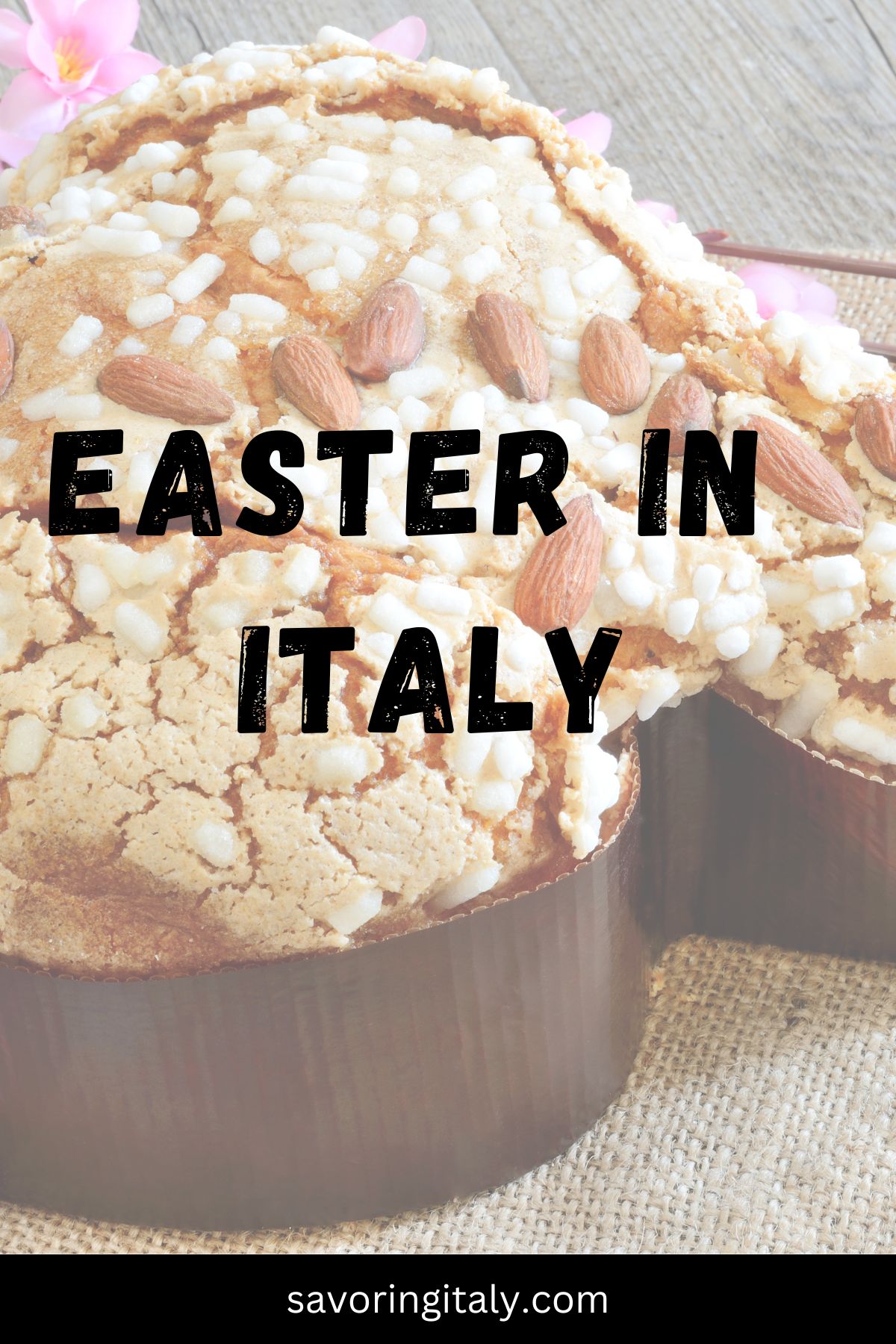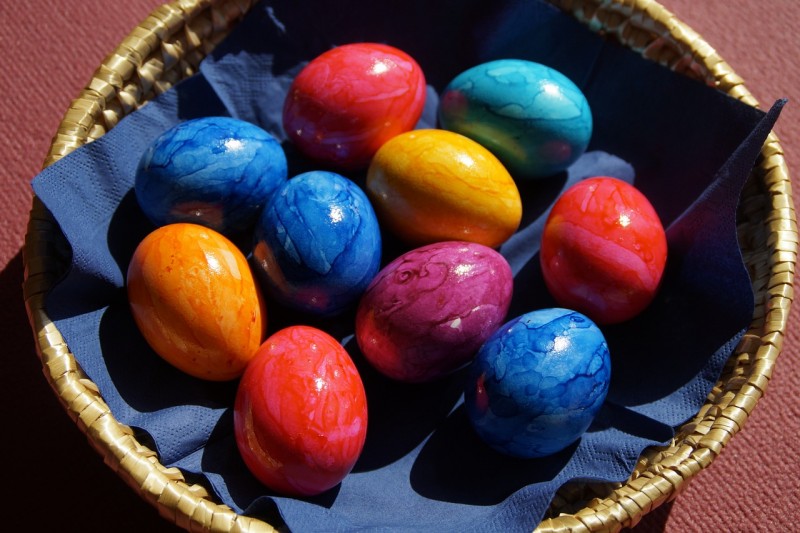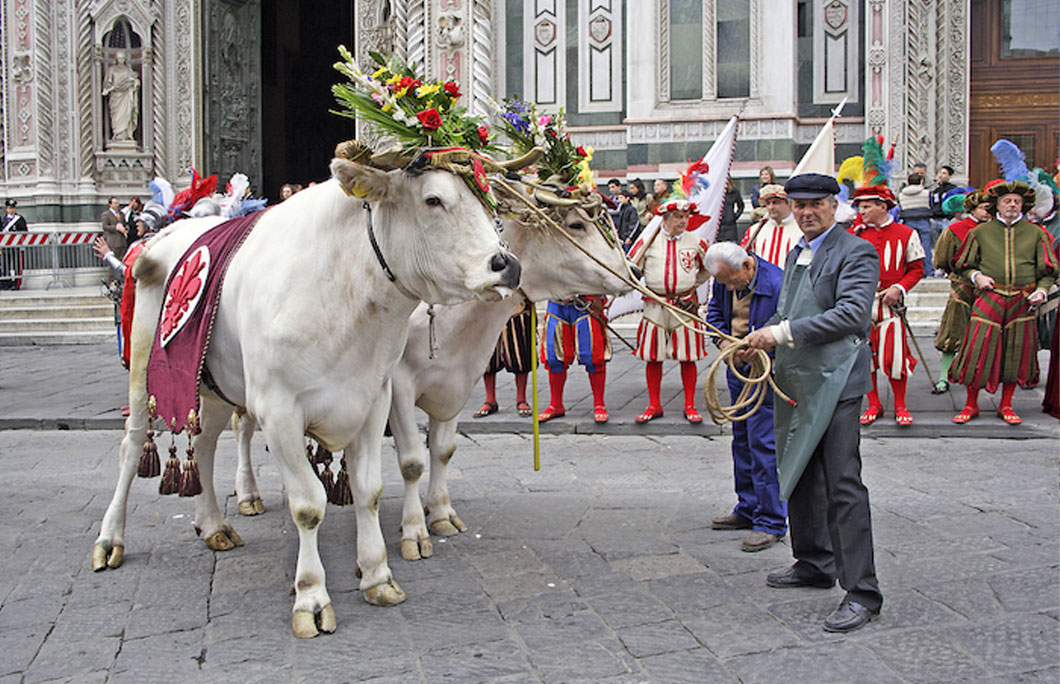Easter in Italy: A Celebration of Tradition, Culture, and Spring
Related Articles: Easter in Italy: A Celebration of Tradition, Culture, and Spring
Introduction
In this auspicious occasion, we are delighted to delve into the intriguing topic related to Easter in Italy: A Celebration of Tradition, Culture, and Spring. Let’s weave interesting information and offer fresh perspectives to the readers.
Table of Content
Easter in Italy: A Celebration of Tradition, Culture, and Spring

Easter in Italy is a vibrant and deeply rooted celebration, blending religious traditions with cultural festivities and the joy of spring’s arrival. The holiday, typically falling in late March or early April, transforms the country into a tapestry of color, music, and ancient customs.
The Significance of Easter in Italy
Easter holds profound religious significance in Italy, a predominantly Catholic nation. It commemorates the resurrection of Jesus Christ, marking the culmination of Holy Week, a period of intense religious observance. The Easter celebrations are steeped in symbolism and rituals, reflecting the country’s rich history and faith.
The Festivities: A Kaleidoscope of Tradition
The Easter festivities in Italy are a captivating blend of religious devotion and cultural expression. Here are some of the most prominent traditions:
-
Holy Week Processions: Throughout Italy, towns and cities come alive with solemn processions, known as "processione," during Holy Week. These processions feature elaborately decorated floats depicting scenes from the Passion of Christ, accompanied by somber hymns and the rhythmic beating of drums. In some regions, like Sicily, these processions can be particularly elaborate, with hooded figures carrying heavy statues and enacting dramatic scenes.
-
Easter Sunday Mass: The Easter Sunday Mass, or "Messa di Pasqua," is a central event in the Italian Easter celebrations. Churches are filled with worshippers, and the atmosphere is one of joy and renewal. The Mass is often followed by a celebratory meal, bringing families and communities together.
-
Pasquetta: The Monday after Easter Sunday, known as "Pasquetta," is a day for picnics and outdoor activities. Families and friends gather in parks, gardens, and countryside settings to enjoy traditional Easter dishes and celebrate the arrival of spring.
-
Easter Eggs and Chocolate: Easter eggs are an integral part of the Italian Easter celebrations. They symbolize new life and rebirth, and children eagerly await the "uova di Pasqua" – chocolate eggs often filled with small gifts or surprises. The tradition of decorating eggs with intricate designs and patterns is also prevalent, reflecting the artistic heritage of the country.
-
Easter Bread: A variety of Easter breads, known as "pane di Pasqua," are baked throughout Italy. These breads, often shaped into elaborate designs and decorated with symbols of the holiday, are enjoyed as part of the celebratory meals.
Regional Variations and Unique Traditions
Easter celebrations in Italy are not uniform; each region boasts its own unique customs and traditions, adding to the diversity and richness of the experience. Here are some examples:
-
Florence: In Florence, the "Scoppio del Carro" (Explosion of the Cart) is a unique tradition on Easter Sunday. A cart adorned with fireworks is pulled through the city, culminating in a spectacular explosion that symbolizes the resurrection of Christ.
-
Rome: Rome is home to the traditional "Pasqua Romana," with a focus on religious processions and the Easter Sunday Mass at St. Peter’s Basilica. The city also hosts a vibrant Easter market, offering a wide array of handicrafts, souvenirs, and local delicacies.
-
Sicily: Easter in Sicily is known for its dramatic and emotional processions, featuring hooded figures carrying heavy statues and enacting scenes from the Passion of Christ. The region also boasts a unique tradition of "Uova di Pasqua decorate," intricately decorated eggs that are considered works of art.
-
Naples: Naples is famous for its "Pastiera Napoletana," a traditional Easter dessert made with wheat berries, ricotta cheese, and spices. The city also hosts a vibrant Easter market, offering a wide range of local crafts and delicacies.
Easter in Italy: A Cultural Experience
Beyond the religious significance, Easter in Italy offers a vibrant cultural experience. The festive atmosphere, the colorful decorations, the traditional music, and the delicious food create a unique and memorable experience for visitors and locals alike.
The Benefits of Visiting Italy During Easter
Visiting Italy during Easter offers several advantages:
-
Mild Weather: Spring in Italy is generally mild and pleasant, making it ideal for exploring the country’s many attractions, from historical sites to picturesque landscapes.
-
Cultural Immersion: Easter in Italy offers a unique opportunity to experience the country’s rich traditions and cultural heritage firsthand.
-
Less Crowds: While Italy is a popular tourist destination, Easter is generally less crowded than peak season, allowing for a more relaxed and enjoyable experience.
-
Festive Atmosphere: The festive atmosphere of Easter adds a special touch to any trip to Italy, making it a truly memorable experience.
-
Delicious Food: Easter in Italy is a time for indulging in traditional delicacies, from Easter bread and pastries to regional specialties.
FAQs about Easter Holidays in Italy
1. What is the best time to visit Italy for Easter?
The best time to visit Italy for Easter is the week leading up to Easter Sunday and the days immediately following. This period encompasses the most significant religious and cultural events, offering a full experience of the Easter festivities.
2. What are some of the best places to visit in Italy during Easter?
Some of the best places to visit in Italy during Easter include:
-
Rome: Experience the grandeur of the Easter Sunday Mass at St. Peter’s Basilica and explore the city’s historical sites.
-
Florence: Witness the spectacular "Scoppio del Carro" tradition and enjoy the vibrant atmosphere of the city.
-
Sicily: Explore the unique Easter traditions of Sicily, including the dramatic processions and the intricate "Uova di Pasqua decorate."
-
Naples: Indulge in the delicious "Pastiera Napoletana" and experience the lively Easter market.
-
Venice: Enjoy a romantic gondola ride through the canals and explore the city’s historical landmarks during the Easter festivities.
3. How do I book accommodation for Easter in Italy?
It is recommended to book accommodation well in advance, especially if you are traveling during peak season. Consider booking through reputable travel agencies or online platforms like Airbnb or Booking.com.
4. What are some of the traditional Easter dishes to try in Italy?
Some of the traditional Easter dishes to try in Italy include:
-
Pastiera Napoletana: A ricotta cheese, wheat berry, and spice-filled pastry.
-
Colomba Pasqualina: A sweet bread cake with candied fruit and almonds.
-
Agnello Pasqualino: Roasted lamb, a traditional Easter dish.
-
Torta Pasqualina: A savory pie filled with spinach, ricotta cheese, and herbs.
-
Uova di Pasqua: Chocolate eggs, often filled with small gifts or surprises.
5. What are some tips for traveling to Italy during Easter?
Here are some tips for traveling to Italy during Easter:
-
Book your flights and accommodation in advance: Easter is a popular travel time, so it’s essential to book your flights and accommodation well in advance to secure the best deals and avoid disappointment.
-
Pack for varying weather conditions: Easter in Italy can be unpredictable, so pack for both warm and cool weather.
-
Learn a few basic Italian phrases: While English is widely spoken in tourist areas, knowing a few basic Italian phrases can enhance your travel experience.
-
Be respectful of local customs and traditions: During Easter, it’s important to be mindful of local customs and traditions, especially when attending religious services or participating in processions.
-
Try the local cuisine: Easter in Italy is a time for indulging in traditional delicacies, so be sure to sample the local cuisine.
-
Enjoy the festive atmosphere: Embrace the festive atmosphere of Easter in Italy and enjoy the unique traditions and cultural experiences.
Conclusion
Easter in Italy is a captivating blend of religious devotion, cultural festivities, and the joy of spring’s arrival. From the solemn processions of Holy Week to the vibrant celebrations of Easter Sunday, the holiday offers a unique and memorable experience. Whether you are seeking a spiritual pilgrimage, a cultural immersion, or simply a chance to enjoy the beauty of Italy, Easter in this enchanting country promises an unforgettable journey.
:max_bytes(150000):strip_icc()/italy---religion---pope-francis-celebrates-easter-mass-535320528-5c277794c9e77c000181e777.jpg)

:max_bytes(150000):strip_icc()/procession-of-good-friday-in-enna--sicily--italy-522050906-5c27757ec9e77c0001627c79.jpg)
:max_bytes(150000):strip_icc()/easter-mass-in-saint-peter-s-basilica-538120028-5c2777c646e0fb0001e0b9c4.jpg)


:max_bytes(150000):strip_icc()/firework-display-at-scoppio-del-carro-573101449-5c27768546e0fb00011d8e87.jpg)

Closure
Thus, we hope this article has provided valuable insights into Easter in Italy: A Celebration of Tradition, Culture, and Spring. We hope you find this article informative and beneficial. See you in our next article!